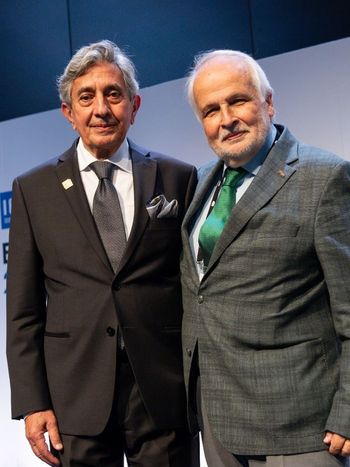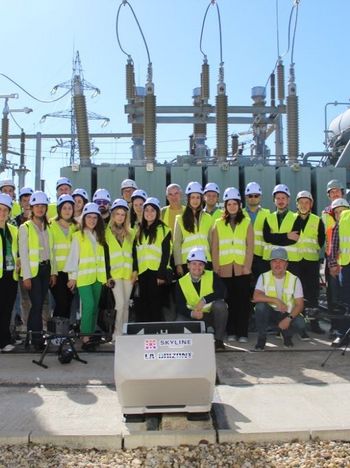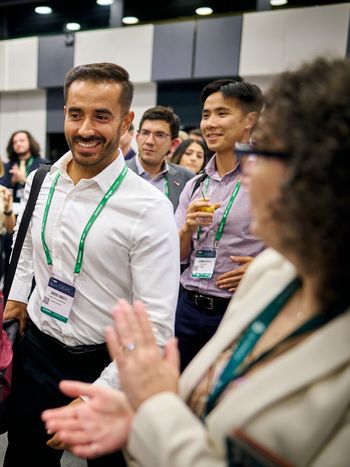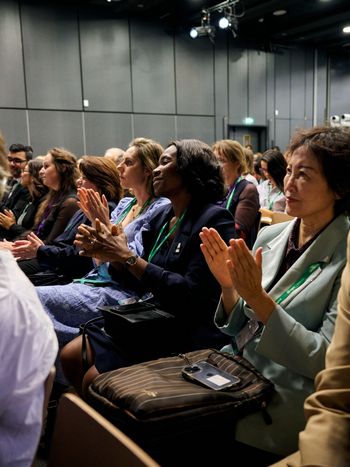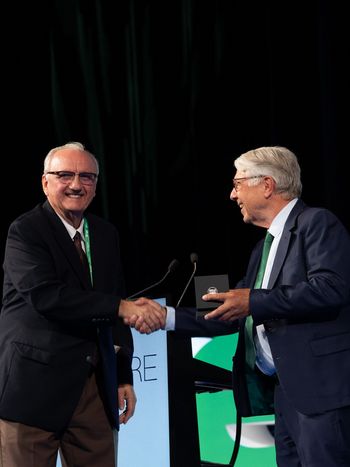Paris Session CEO Forum Electrification of the Economy: The Role of the Electricity Sector in Global Decarbonization
At the 2024 Paris Session, the CEO Forum discussed the relevant topics of Electrification of other Sectors, as part of the “Energy Transition” era. The Forum was led by the CIGRE President Michel Augonnet, and moderated by Joao Carlos Mello, the Brazilian National Committee Chair, with the support of Marcio Szechtman, Technical Vice-President of CIGRE and four Study Committee Chairs.
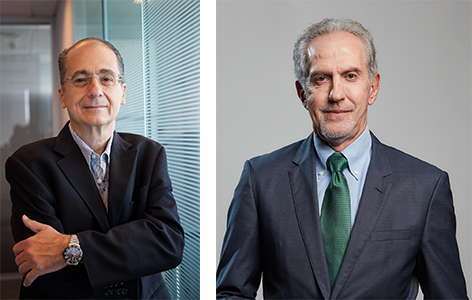
By João Carlos de Oliveira Mello, CIGRE Brazil National Committee Chair
& Marcio Szechtman, CIGRE VP Technical Council Chair
The CEO Forum was organized in 4 panels:
- The “Transition” and what does that mean for the Power System.
- How Businesses will be affected by the Transition.
- Which Operational Risks could be identified in the Transition.
- How are we, in the Power System Business prepared regarding the personnel skills to face the Transition.
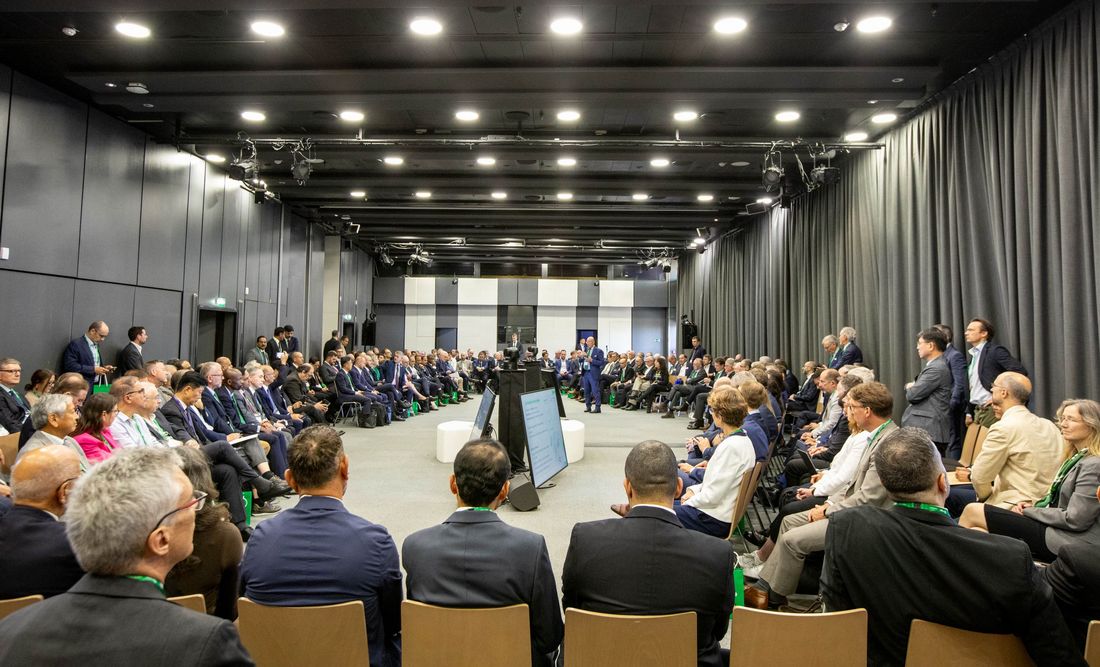
During the panel discussion, various experts presented reflections and data that showed how electricity has become one of the paths most chosen by various productive sectors to reduce emissions. The shift towards a more renewable electricity matrix in countries is an advanced process and the satisfactory supply of accessible renewable sources, mainly solar and wind, encourages sectors of the economy to electrify their activities, riding on the success of the electricity sector and replacing fossil fuels in production processes with electricity, reducing greenhouse gas emissions.
Two segments of the economy are well along this path: industry and transportation. In the former, fossil fuels have historically been an important raw material in heating technologies for metal smelting, cement production and chemical processing. Today, many companies are replacing old systems with heating technologies powered by electricity. In transportation, the movement is similar and electric vehicles are multiplying.
This choice of electricity over renewable fuels demonstrates how the electricity sector is at the forefront of decarbonizing the economy and society.
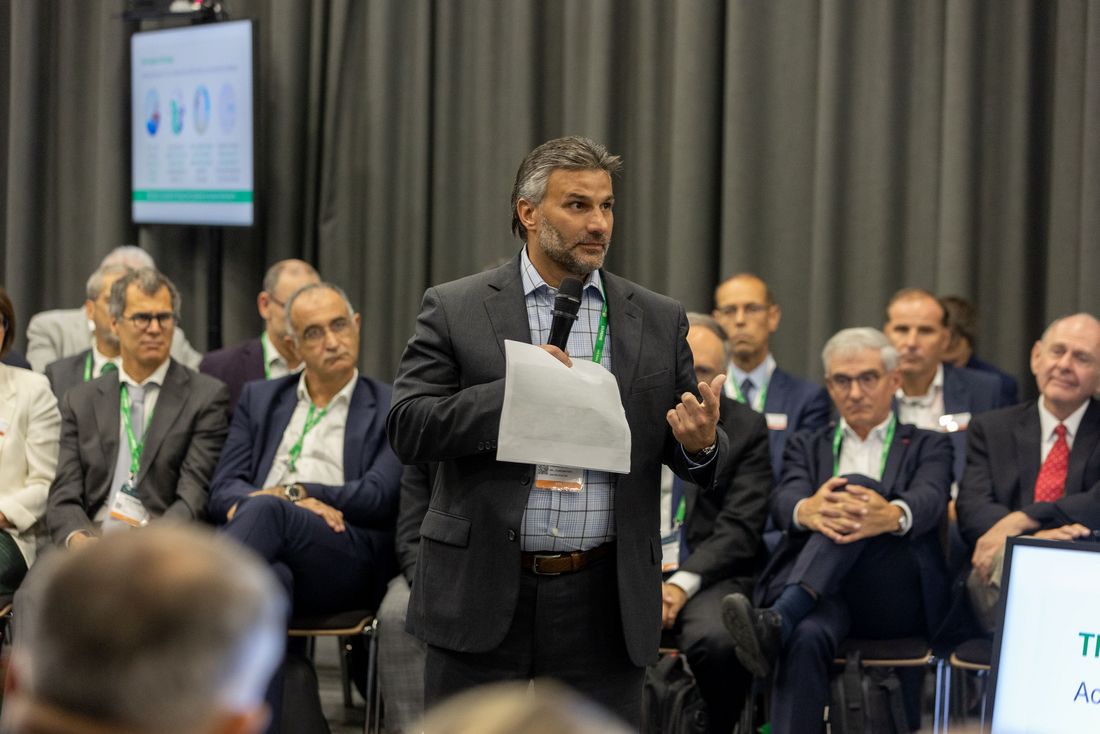
At the first panel, Vince Sorgi, president and CEO of PPL Corporation and Chair of the Board of EPRI (Electric Power Research Institute), highlighted some points for attention. Although the advance of renewable electricity matrices is significant to the point of encouraging an electrification movement, there is still a long way to go towards the electricity sector's goals of net-zero CO2 emissions by 2050.
As a result, in addition to accelerating the energy transition, all aspects of business must evolve to provide a more sustainable energy system that is affordable and reliable. Security of supply is a key factor in an increasingly electrified economy; after all, industrial production and transportation systems cannot go without power. Among the practical measures needed to be incorporated by the sector are the operation of power grids: preventing outages and improving restoration times through system reinforcement, updated design criteria, smart grid technology, the use of artificial intelligence (AI) and greater use of automation in the face of more frequent and severe weather events.
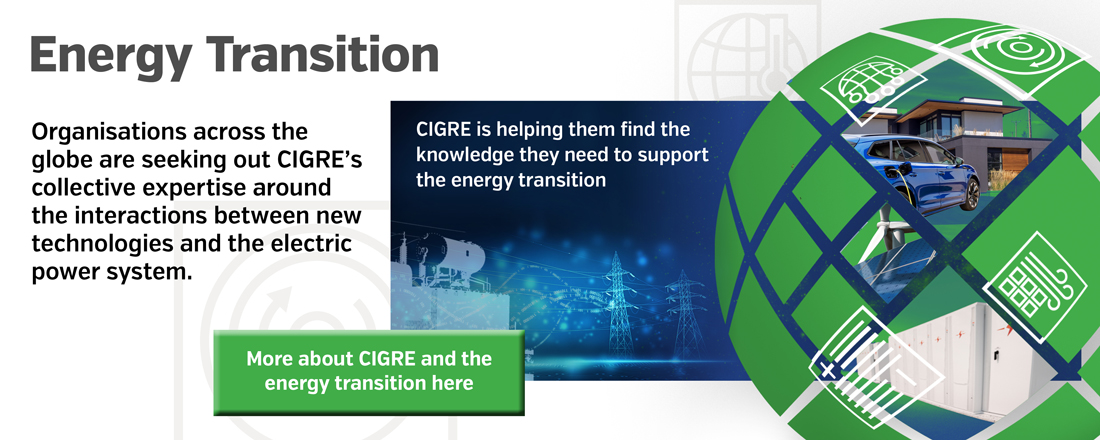
It will also be necessary to promote the transition to clean energy in an affordable and reliable way, replacing end-of-life coal plants with natural gas, expanding the supply of renewable energies, and adopting battery storage solutions. As Sorgi pointed out, the word that expresses the chances of success in the transition is cooperation - between different energy sectors and stakeholders, such as market participants, consumers, industry, the financing system, regulators, and politicians.
Antonio Iliceto, Chair of CIGRE's SC (Study Committee) C1 - Power System Developments & Economics, presented data to prove the electrification process. By the middle of this century, electricity is expected to account for 51% of global energy consumption. In the breakdown of total energy consumption, fossil fuels accounted for 63% of total consumption in 2020. The 2050 vision also calls for the share of modern uses of biomass to rise to 16%; and 14% for hydrogen (mainly green, 94%), thus reducing fossil fuels to a share of just 12%.
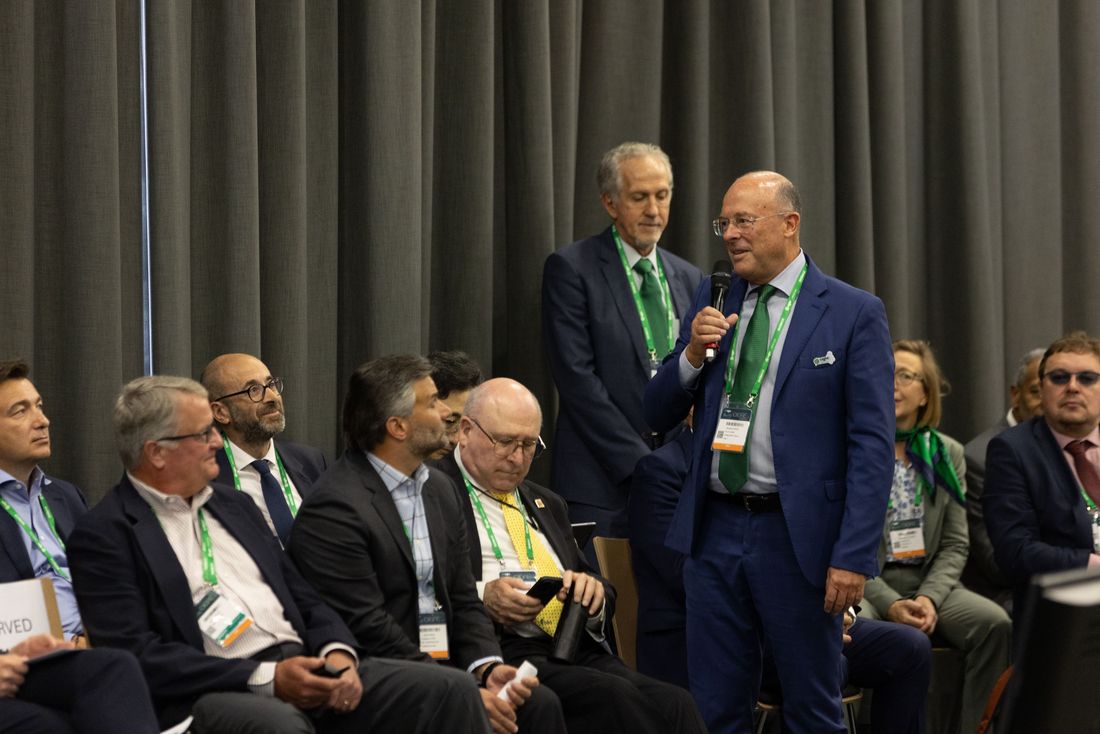
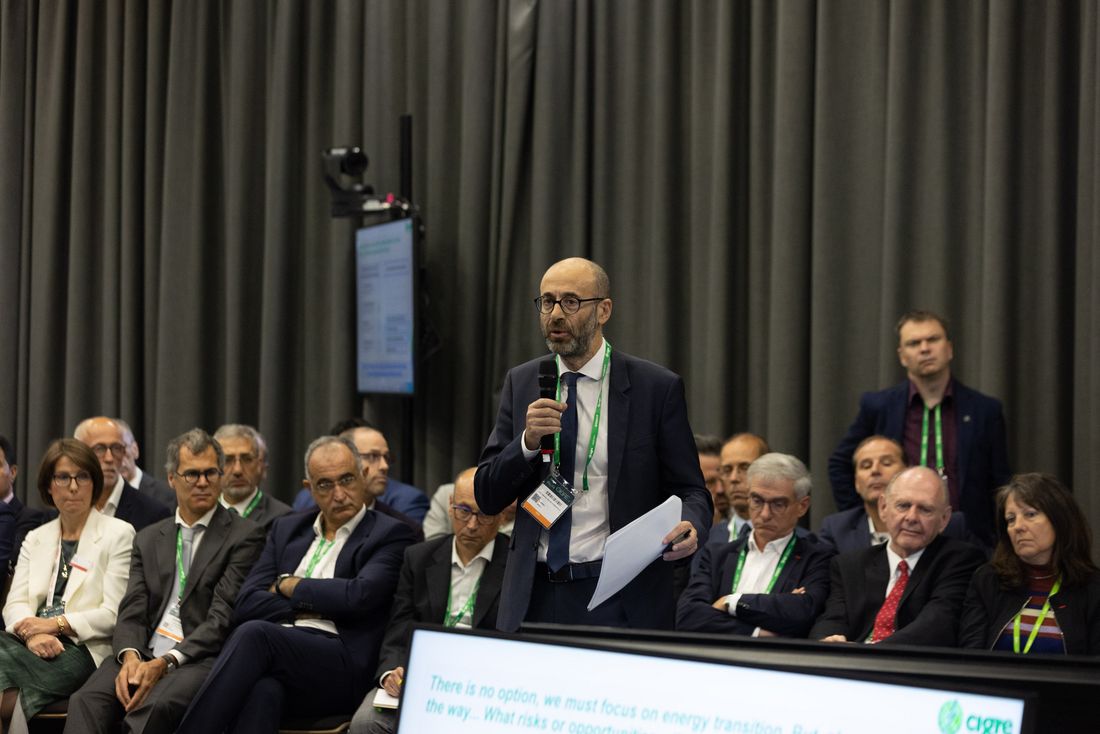
At the second panel, José Manuel Revuelta Mediavilla, Head of Enel Grids Iberia, pointed out that, in addition to electrification, there are other factors that influence demand, such as data centers, which often congest grid capacity, and green hydrogen, with its high loads. In addition, new modalities, such as self-consumption, increase the unpredictability of this load. Given this scenario, the expectation is that companies in the electricity sector will be faced with increasingly complex, risky, and unpredictable management and financing contexts.
The answers to these challenges go through in a few lines of action, as Revuelta outlined. These include establishing long-term partnerships with energy sector players and defining strategic investments and the joint development of new technologies. From an operational point of view, the key factor is the electricity networks, both transmission and distribution, which must be robust, resilient, sustainable, digital, and flexible. Stable and predictable regulation is needed to support investment and development. In addition, the regulatory framework must encourage the development of power grids to enable the localization of businesses, as well as ensuring that customers' needs are met.
Alex Cruickshank, CIGRE's Chair for SC C5 - Energy Markets and Regulation, added that although the fundamentals of the market remain the same, technologies continue to evolve, causing changes in community values, which must be considered. Consumers should benefit from the changes that are incorporated into the electricity sector and be aware of the impact of their choices on the cost of the system.
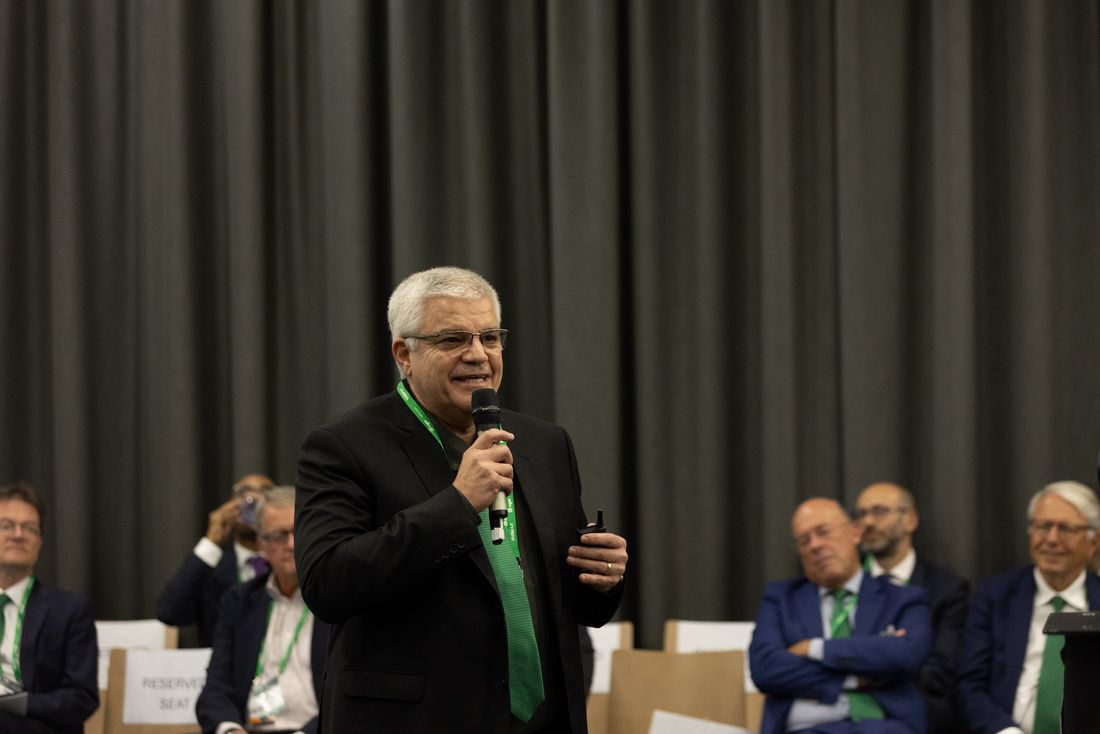
At the third panel, S.R. Narasimhan, Chair and Managing Director of Grid Controller of India Limited (GRID-INDIA) and Chair of GO15, also highlighted the major impacts of decarbonization on demand and the intrinsic challenges for grid operators. For him, challenges such as building resilient energy systems, expanding the supply of large-scale transmission assets, and managing renewable energy queues need to be addressed.
Jayme Darriba Macêdo, Chair of SC C2 – Power System Operation & Control, also addressed the challenges of operating in a more electrified economy and presented CIGRE's vision on the subject. He mentioned electric mobility and the electrification of industry as factors affecting load, as well as the production of green hydrogen and data centers. He added that, in addition to more energy, these savings would generate variability in demand. Consequently, load forecasting and dispatch will be tremendously affected, in addition to the “decreasing loads” effect associated with distributed generation, efficiency programs and demand response.
Both speakers highlighted the keyword for dealing with the new consumption configuration is flexibility - which includes flexible generation resources, a robust market for ancillary services, as well as demand response programs supported by appropriate market instruments. This scenario will require having complex and reliable tools at hand in the control rooms, such as more accurate load forecasting models, capable of considering variable generation and loads, in order to allow operators to make decisions.
At the fourth panel, two company representatives, one from Europe and one from the USA, gave their impressions and perspectives on the challenges related to the workforce. In their presentations, they drew attention to the great similarity of the workforce situation of the power sector in the European Union and the USA. In Germany, according to Wilfried Breuer, managing director of MR and Chair of the CIGRE German National Committee, the high demand for the replacement of senior professionals and the requirement to deal with the needs of the energy transition come amid a reduction in engineering graduates and new students - a drop of 35% in the last 10 years.
Concerns are similar in the US. John H. Mueller, owner of G&W Electric, pointed out that there are currently more retirees than new entrants and the number of engineering enrollments is falling. The strategy of bringing industries and electricity utilities closer together with educational institutions was advocated, as a way of promoting and encouraging the careers of technicians and engineers with diversity. The growing demand for specialized professionals because of the electrification of different sectors raises the workforce to a strategic level for the success of the 2050 vision of zero emissions.
Final remarks from President Augonnet stated that by the depth of the discussions held at this CEO Forum, CIGRE has once again fulfilled its mission of contributing to progress in the electricity sector. Faced with the urgent need to correct the course imposed by climate change, our mission is becoming increasingly important and valuable to society as a whole. Last but not least, it has been proposed to deepen the discussion on workforce for the next CEO Forum, in 2026.
NOTE: The authors wish to acknowledge the contributions to this article from Antonio Carlos Carvalho.
